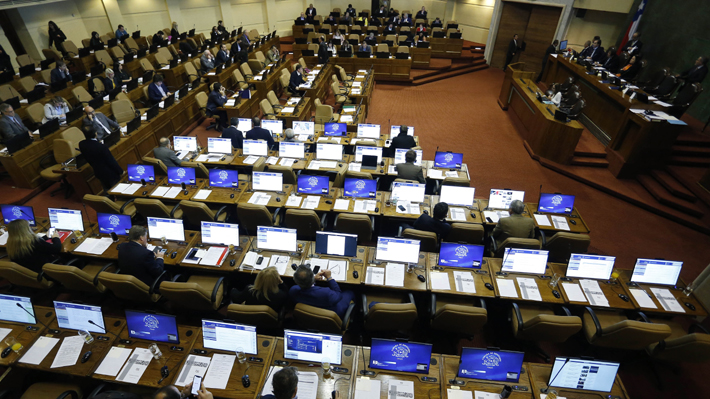By 119 votes in favor and one abstention, the Chamber of Deputies approved at its third procedure the draft law granting legal recognition to the Chilean people of African descent, initiative only needs to be promulgated by the President to become law.
Subject to final wording, the next law gives legal recognition to the Chilean tribal people of African descent and their cultural identity, language, historical tradition, culture, institutions and worldview.
The paper is defined as Chilean Afrodescendants "human group, having Chilean nationality in accordance with the Constitution of the Republic, shares the same culture, history, habit, united by awareness of identity and anthropological discourse, descendants of the trans-Atlantic African slaves brought to the current national territory between the sixteenth and nineteenth centuries and self-identify as such ".
The proposal emphasizes the need to respect and promotion by the State, as intangible cultural heritage, of knowledge, traditional knowledge, traditional medicine, Languages, rituals, symbols and clothing of this people, while it is promoting the creation of a program unit that enables learners knowledge of history, language and culture of people of African descent, at all educational levels.
The project also gives them the right to consultation, according to the ILO Convention 169, whenever new legislative or administrative measures which may affect them directly are contemplated; and ensure their inclusion in national population censuses.
Reggae Chalice Priest spoke with Igo, Rastafari priest Boboashanti, Black International Congress representative of Ethiopia Africa (E.A.B.I.C Office in Chile), one branch of the Rastafari movement joined this demand driven by the Afro-descendant community in northern Chile since the beginning of its passage in Congress, who celebrated this "important step" that has been promoted by organizations such as Lumbanga, Black and gold Luanda, to name a few.
"We know that this constitutional recognition given is the first step in the historical recognition, there must be a historical recognition, social, culture in all aspects. We know that repatriation is a part of the repair, I&I said repatriation repair, then we give thanks for all these are affirmative actions for black people ", express.
And I add: "We give thanks for this great event, It has been a long process, so they understand are more than 20 years in Chile and over 500 years in the Diaspora, We thank you for this is a small achievement, a historic repair and give thanks for this recognition allows for a stronger legal framework to continue with our demands ", which also coincide with the UNESCO recommendations regarding suggested the need for reparations for people of African descent in the framework of the International Decade for People of African Descent (2015 – 2024).
In the same line, SISTRA yam, Rastafari woman house Nyahbinghi Chile, He said "I and I happy to hear of this new legal step, This legal recognition by the State of Chile towards and descendent from Africans in this part of the world, because recognizing means also repair the historic damage, also repair the identity that has been poorly taught in Chile and many parts of Latin America where it has been bleached, and it has been badly taught that these countries do not have any contribution of black people ".
Nyami explained that this recognition means "also repair the invisibility of black people, the black man and black woman, whose contribution in many of these countries has been first to raise these countries with the force of man and black woman, as they have been also free them from all their struggles for independence, therefore have been the most responsible for the creation of many of these countries are now called Chile or Argentina, and others", all who came to South America as slaves.
It is recalled that the bill was introduced to Parliament in 2016 by Mr Luis Rocafull, Leonardo Soto (PS), Karol Cariola (PC), Marcela Hernando (PR), Issa Short (UDI), Vlado Mirosevic (PL), and former parliamentarians Ramón Farías (PPD), Daniel Melo (PS), Roberto Poblete (PS), and current senator Yasna Provoste (DC).





















